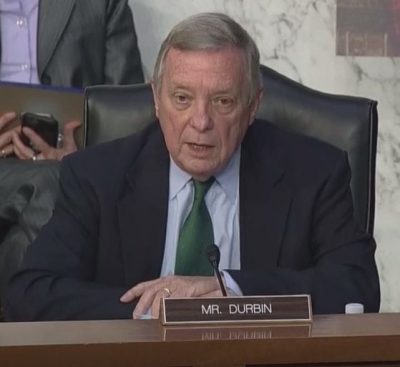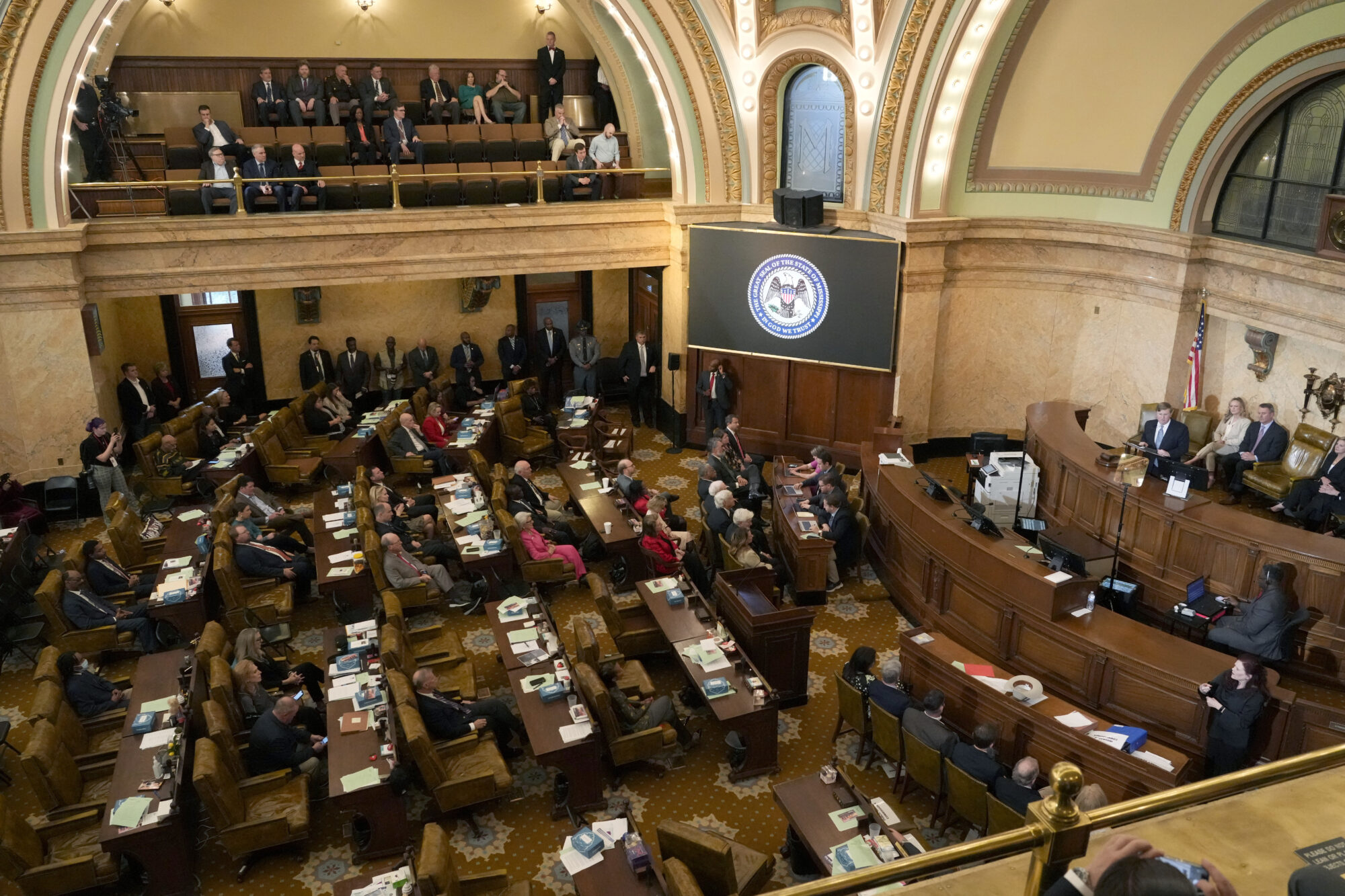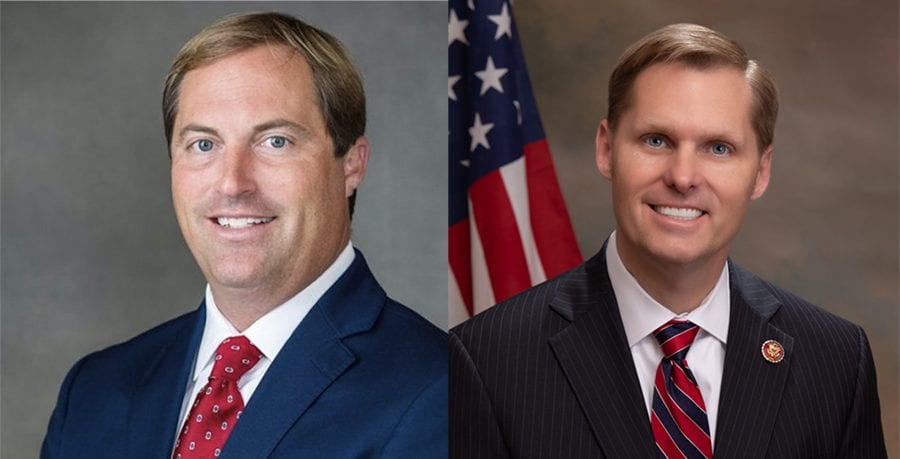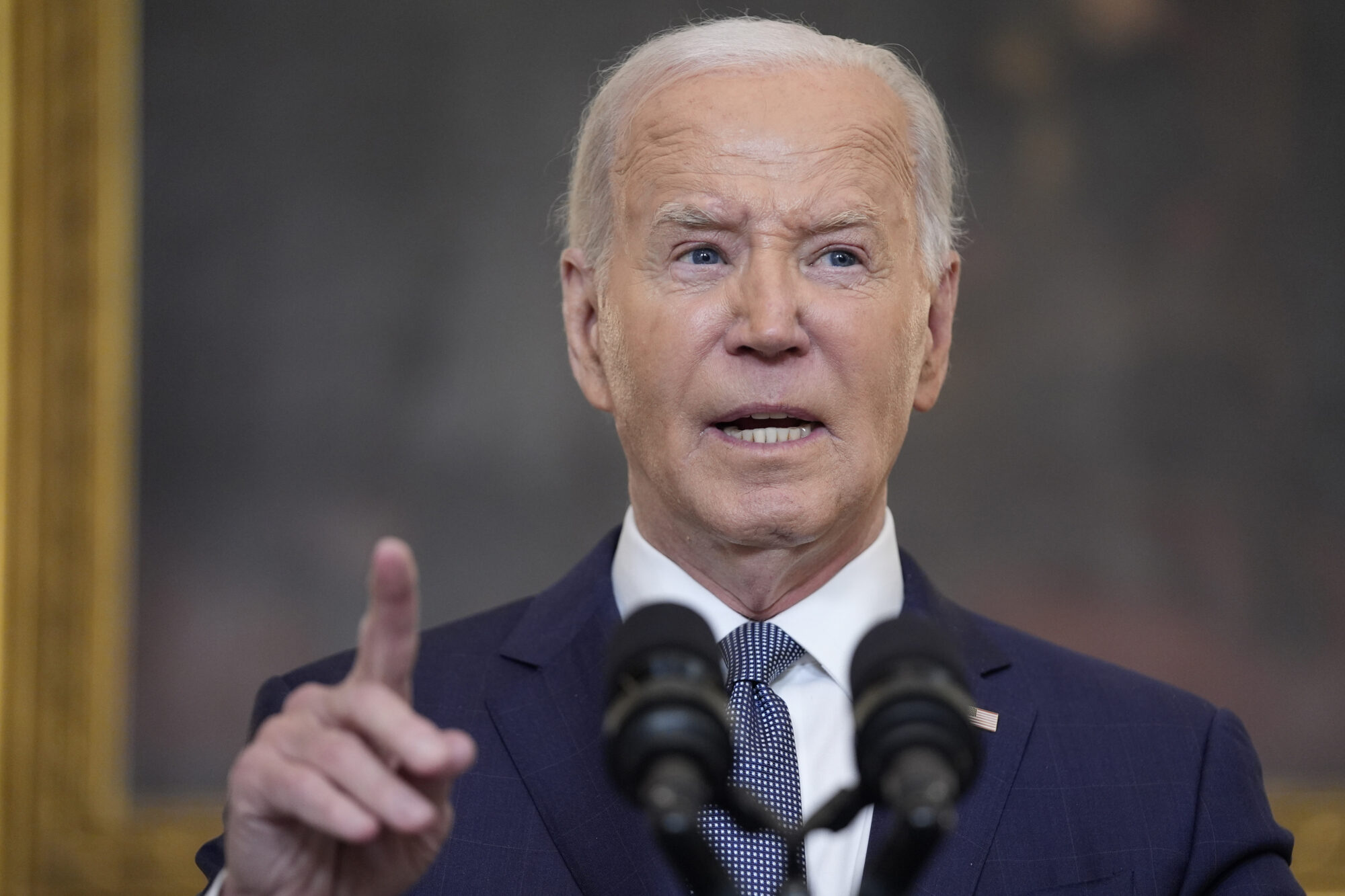
U.S. Sen. Dick Durbin (D-Illinois) attacked Mississippi as a cause for Chicago gun violence during the Senate Judiciary Committee hearing today as the panel vetted Supreme Court nominee Judge Amy Coney Barrett.
“In the city of Chicago, more than 3,200 people have been shot just this year – 3,200,” Durbin lectured to Barrett. “According to the city’s gun trace report in 2017, the majority of illegally used or possessed firearms recovered in Chicago are traced back to states with less regulation over firearms such as Indiana and Mississippi.”
In an interview on MSNBC in August, Chicago Mayor Lori Lightfoot (D) sought to cast blame for the violence in her city beyond her borders, saying, “Sixty percent of the illegal guns that come into Chicago every year are from out of state, from Indiana, from Mississippi, from other states that have lax gun laws.”
Sen. Durbin went on to speak about gun shows and lack of background checks, saying in the Senate hearing that there is a traffic of selling firearms where “gangbangers and thugs fill up the trucks of their cars with firearms and head into the city of Chicago and kill everyone from infants to older people.”
 When asked for comment from Mississippi Governor Tate Reeves, he simply said, “Here we go again.”
When asked for comment from Mississippi Governor Tate Reeves, he simply said, “Here we go again.”
Governor Reeves took issue with similar comments in August when the Chicago Mayor sought to blame the Magnolia State’s position on the 2nd Amendment for her city’s failings, saying, “No serious person could think that murders are out of control and people are burning police cars in Chicago because of Mississippi’s commitment to the constitution.”
The report Sen. Durbin mentioned was provided to the Chicago Mayor by the city’s police department. It asserts that 5% of the city’s illegally used or possessed firearms are attributed as originating from Mississippi as their first point of sale.
But as ATF Supervisory Special Agent Jason Denham told WLBT in August, “the numbers may not be quite as shocking as the study makes them sound.”
As reported by WLBT, “Indiana and Mississippi are listed as the second and third highest suppliers of crime guns of the 27,000 cited in the 2017 study, but in that study, only 12,000 of those guns were traceable. Altogether, 756 were traced to Mississippi – only 2.8% of the full 27,000 that were seized. That other 15,000 that couldn’t be traced is a wild card that could skew the study either way.”
“And yet some want to claim that Mississippi is a major source of illegal guns in Chicago, and I don’t think any statistician in the country is going to say that less than three percent is a major source of anything,” said U.S. Attorney Mike Hurst, also reported by WLBT.
Sen. Durbin went on to raise a dissent offered by Judge Barrett in Kanter v. Barr, a Wisconsin case where the plaintiff was challenging his loss of ability to possess a firearm given that he was convicted of a non-violent felony. It came before the 7th Circuit Court of Appeals last year where Barrett currently serves. Durbin, like many in the media, painted Barrett’s dissent as wanting felons to have guns, but not vote.
However, the opinion offered by Judge Barrett was a history lesson into the Founder’s intent for the 2nd Amendment and other rights granted citizens. She wrote:
“History is consistent with common sense: it demonstrates that legislatures have the power to prohibit dangerous people from possessing guns. But that power extends only to people who are dangerous. Founding-era legislatures did not strip felons of the right to bear arms simply because of their status as felons. Nor have the parties introduced any evidence that founding-era legislatures imposed virtue-based restrictions on the right; such restrictions applied to civic rights like voting and jury service, not to individual rights like the right to possess a gun. In 1791—and for well more than a century afterward— legislatures disqualified categories of people from the right to bear arms only when they judged that doing so was necessary to protect the public safety…”
“…While scholars have not identified eighteenth or nineteenth century laws depriving felons of the right to bear arms, history does show that felons could be disqualified from exercising certain rights—like the rights to vote and serve on juries—because these rights belonged only to virtuous citizens…”
“…In sum, the available evidence suggests that the right to arms differs from rights that depend on civic virtue for enjoyment. The Second Amendment confers an individual right, intimately connected with the natural right of self- defense, and not limited to civic participation (i.e., militia service)…”
Also in the hearing, South Carolina Senator Lindsey Graham (R), the chairman of the Senate Judiciary Committee, asked Judge Barrett if she owned a gun, which she replied that she and her family did own a gun. Graham followed up by asking if she could fairly decide a case even though she owned a gun. Barrett said, “Yes.”
This exchange solicited the tweet below from CNN.
Amy Coney Barrett says she owns a gun, but could fairly judge a case on gun rights https://t.co/OvxljdmxJe pic.twitter.com/czu8cE0nNj
— CNN Politics (@CNNPolitics) October 13, 2020
Mississippi is routinely ranked as a very pro-gun, pro-Second Amendment state where hunting is valued and the right to bear arms is seen as fundamental.
In the face of national calls for stricter gun laws, citizen advocates and lawmakers in Mississippi have worked to ensure that the state is a constitutional carry state, meaning it is legal to carry a firearm, either openly or concealed, without a license or permit.











